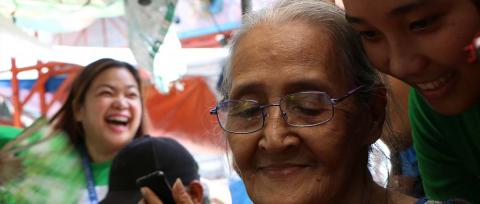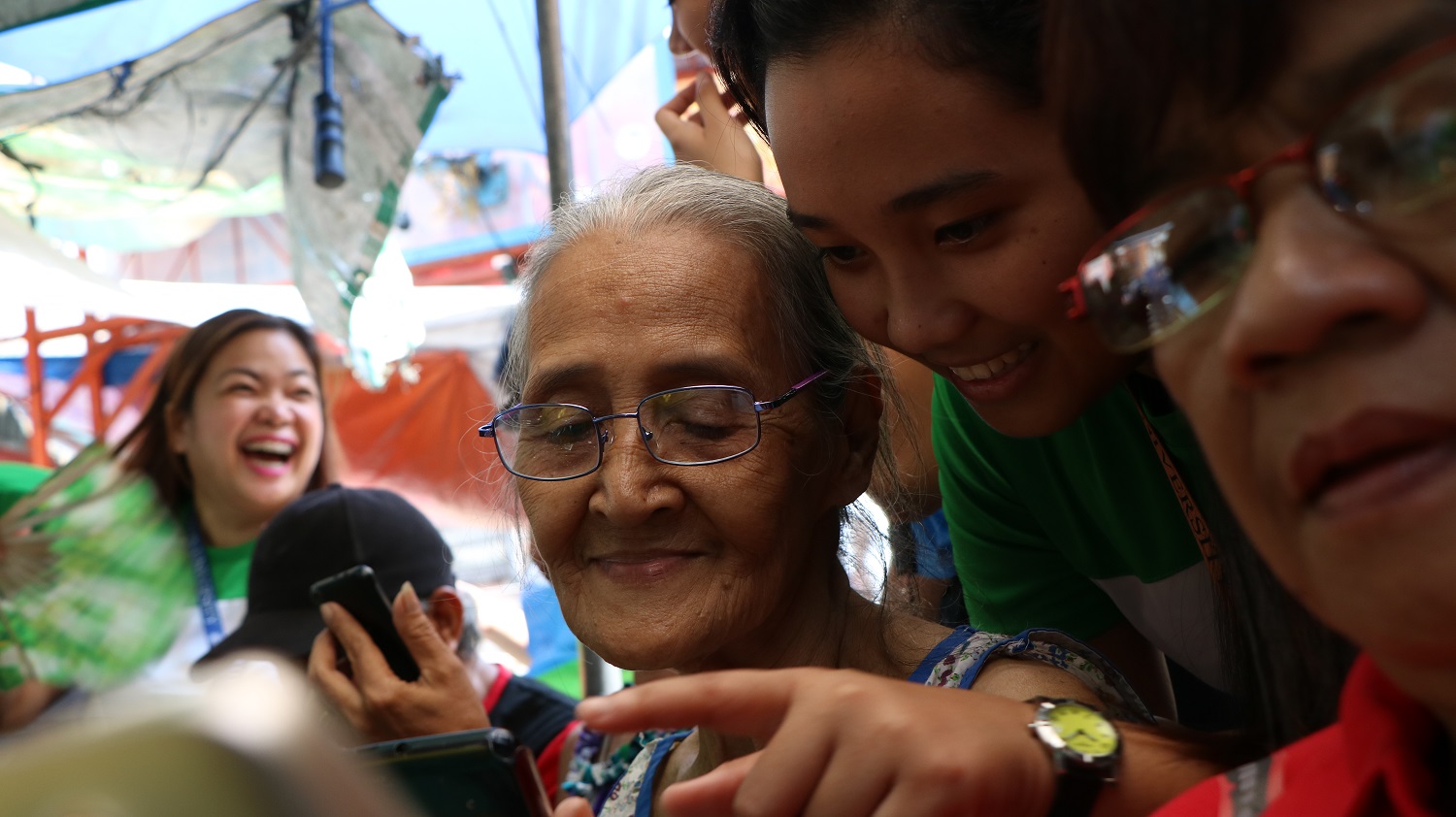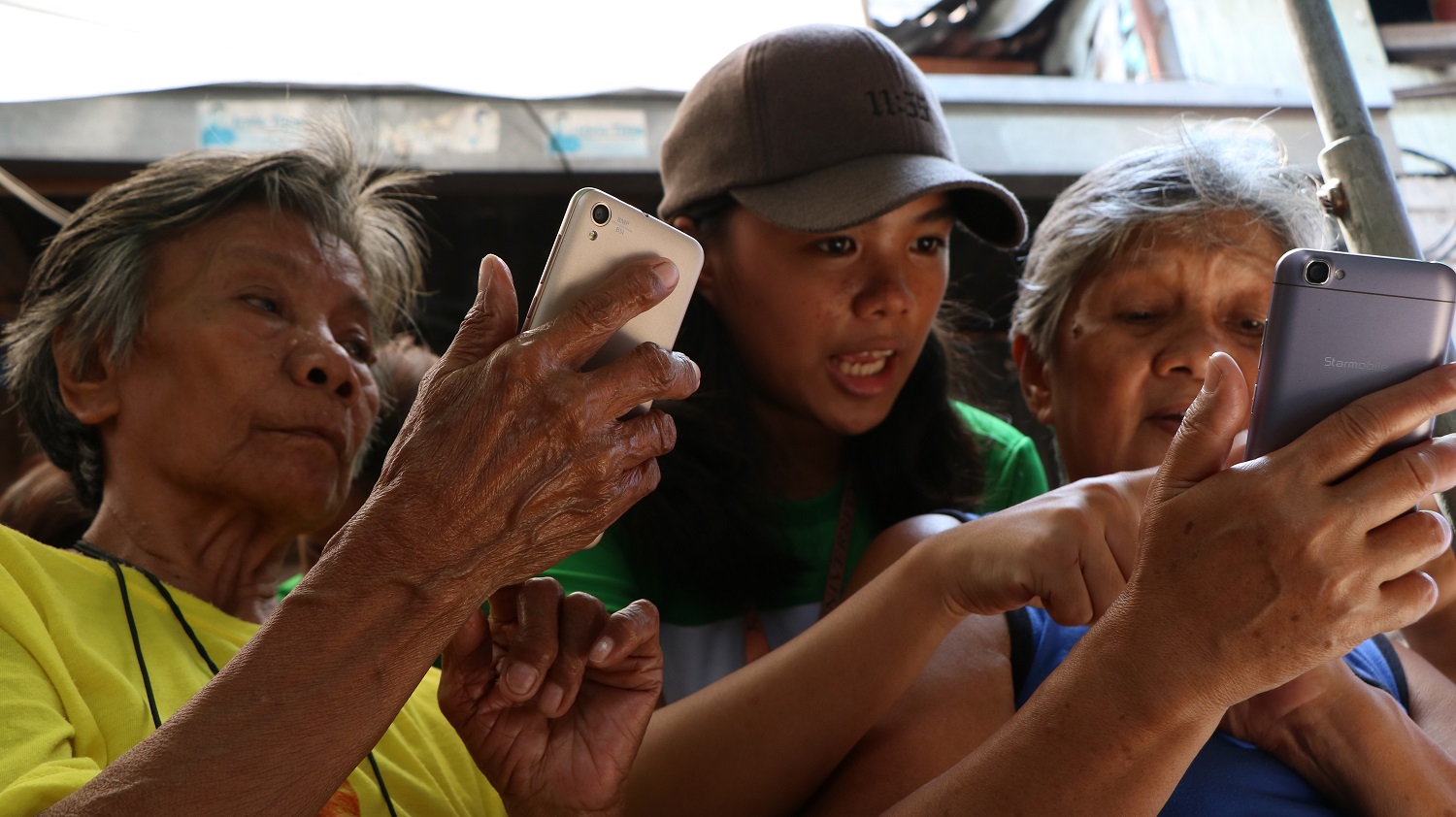
For some senior citizens, learning to navigate the internet gives more than just access to information and services. It gives them hope of inclusion in our tech-driven society, and more importantly, the chance to reconnect with their families who have migrated in a digital world they're not familiar with.

The use of smartphones, mobile internet and social media is usually associated with the young, as they are oftentimes more technologically savvy and eager to adapt to new trends.
Meanwhile, many elderly persons shy away from technology for a variety of reasons—some find the topic too complicated and confusing; some think that these are just “for younger persons” anyway; while others simply have no one to teach them how to begin using these devices.
“I remember teaching my own grandmother how to send text messages before. She really had a difficult time with that,” recalls Mary Lorraine Mae Laure, 3rd year Computer Science student at Adamson University. “Whenever I see other elderly persons experience the same difficulties, I am reminded of her.”
Today, on top of learning how to send simple text messages, lolos and lolas also have to learn how to use smartphones and apps like Facebook to keep up with their apos.
“They usually feel shy because they don’t know how to use these things—cell phones, smartphones, Facebook,” says Laure. “When you teach them, you have to patiently explain all the buttons, the icons and their purpose. You have to explain to them what Facebook is for, what Messenger is for, and how these apps can change their lives.”
.jpg)
‘Traveling’ online
For 80-year-old Nanay Virginia, Facebook offers an alternative to traveling. “I have a sister in Cavite but we don’t see each other because travel is already difficult for me. It’s hard to go up and down buses and jeepneys at my age,” she explains. “It’s the same with her—my sister can’t come to me because her legs are already weak.”
Nanay Virginia and a dozen other senior citizens from Brgy 734 in Paco, Manila recently joined a Smart Millenniors session, where Laure and other Adamson volunteers assisted the seniors in learning more about their smartphones and about Facebook.
“Now, with the use of smartphones, we can see each other and even talk to each other. That makes me happy,” she says. She hopes her other relatives are on Facebook, too, so they can see each other more often as well.
.jpg)
Keeping up with the kids
For Nanay Paz, another senior from Brgy 734, learning more about smartphones and Facebook closes a different gap. “Kids today are so updated, so they already know all about these phones, these apps,” she says. “Now that I already know how to use a touchscreen phone, I can now keep up with my grandkids.”
“I now know where to go, which buttons to press—before, they used to play jokes on me, telling me to push this or that, even when I wasn’t supposed to!” she adds, laughing. After spending time with Laure and her classmates, swiping through Facebook and taking selfies, she can’t help the smile on her face throughout.
“When I get home, I can tell my grandkids that I already know about these ‘millennial’ things that they’re always talking about!”
Although upgrading to a new smartphone is low on her priority list, Nanay Paz dreams someday of owning one of her own. “The smartphone really has a lot of functions that are not in my keypad phone, but I don’t have the budget for one right now,” she says. “Maybe someday.”
_0.jpg)
Hopes for the future
Like Nanay Paz, Laure also has some hopes after her volunteering experience. “I saw first-hand how difficult learning to use smartphones could be for the elderly,” she says. “As a Computer Science student, I dream of creating something like a phone for seniors, perhaps one with limited apps. In the usual smartphones, there are a lot of apps and it can be overwhelming. Why not make a phone where just the basics are present, like calling and texting, Facebook, Messenger, etc.”
For Achris Navarro, Adamson faculty member who joined Laure and her classmates, teaching technology can be for everyone. “Age really doesn’t matter in learning, especially about technology,” she says. “Senior citizens are so eager to learn. They may already be seniors, but they still have this one thing that they haven’t tried yet. And we can do something to make sure that when it comes to technology, our seniors are not left behind.”
Part of ensuring the inclusion of senior citizens in tech is making apps specifically for their needs. “Most apps today are geared toward Millennials. I hope there will also be more apps for senior citizens, especially those that can provide convenient human interaction for seniors through technology,” Navarro says.



